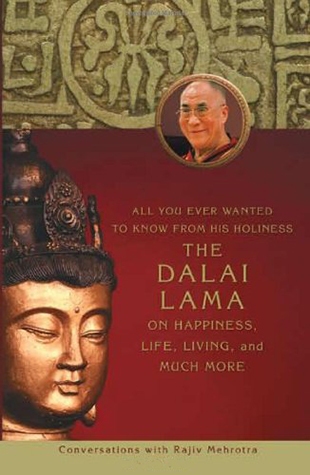Rajiv Mehrotra is an early disciple of the Dalai Lama; he is now a trustee and the secretary of the Foundation for Universal Responsibility, which was set up from funds from the Nobel Peace Prize awarded to His Holiness in 1989. This volume is a sturdy collection of his conversations with the Dalai Lama over the past 25 years.
Anyone who has ever heard the Tibetan spiritual leader speak with others knows his special capacities for listening, empathy, and compassion. In the introduction, Mehrotra writes: "The Dalai Lama stands tall at the ethical and moral center of an interdependent globalized world, because in all that he does, represents, and embodies, he reconciles seeming contradictions with remarkable ease." This book demonstrates that he is also a guru and philosopher who knows a lot about many different subjects.
The Dalai Lama talks in positive terms about the religions of the world and his respect for them. They all share a mutual aim — to make good human beings. Buddhism emphasizes motivation as a key aspect of spiritual evolution. The Dalai Lama tells a story:
"In Tibet, there was a statue of the Buddha in the open. It was raining. A person passing by saw the statue and thought, How can rain fall on the statue, on the body of the Buddha? So he looked around for something to cover it with. He could find nothing other than the soles of old shoes, so he covered the statue with the soles.
"Another person passed by and thought, How can anyone place old soles on the statue of the Buddha? So he took them away. Since the motivation was good in both cases, there was no harm done."
The best type of motivation is bodhicitta, to achieve enlightenment for other sentient beings. Equally important is compassion which the Dalai Lama sees as being beneficial to those who practice it as well as those who are recipients of it. In another section, he discusses the importance of altruism through the control of anger and hatred. An advanced stage of altruism enables us to view our enemies as spiritual teachers.
In all of these conversations, the Dalai Lama makes it clear that bad habits can be overcome and behavior transformed and improved. Other topics covered in the book are karma, reincarnation, mind training, meditation, politics of conflict and religion, universal responsibility, and the Tibet question.
